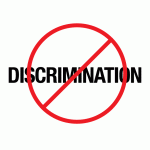By Cynthia McNabb
 As suspected when the United States Supreme Court ruled in 2009, in the case of Ricci v. DeStefano, reverse discrimination cases among police and firefighters are in the headlines, with several verdicts reached favoring the plaintiffs who have brought reverse discrimination cases against their employers.
As suspected when the United States Supreme Court ruled in 2009, in the case of Ricci v. DeStefano, reverse discrimination cases among police and firefighters are in the headlines, with several verdicts reached favoring the plaintiffs who have brought reverse discrimination cases against their employers.
The Ricci case, famously known as the New Haven firefighters case, involved white fire fighters suing the City of New Haven, CT for failing to certify the results of an examination used to determine promotions The white firefighters in the case alleged that the City of New Haven purposefully threw out a test that white firefighters passed at a 50% greater rate than African Americans. Promotion was based on the test results and, because none of the African Americans would have passed and qualified for promotion, the city discarded the test results. This also meant that no white firefighters were promoted. The City argued that the City had no choice but to discard the test because the test design unfairly discriminated against minorities and that it would be subject the City to litigation if it upheld the test results. The Second Circuit agreed on Summary Judgment. In a 5-4 decision, the U.S. Supreme Court reversed the 2nd Circuit decision. Following the reversal, the City settled for $2 million. Following that decision, labor attorneys and court watchers expected to see a flurry of reverse discrimination cases, an expectation that has come to fruition.
For instance, on September 6, 2012, a Mercer County, New Jersey jury awarded $6.8 million to two senior correction officers (along with $3 million in punitive damages against the State) who claimed they were harassed and subjected to false disciplinary charges by African American supervisors. The jury found that the State Department of Corrections violated the New Jersey law against discrimination when it transferred the two officers and failed to address hostility directed against them and other white officers.
Evidence illustrated that when white officers complained of unfair discriminatory practices, their allegations were “buried,” however when African American officers complained of similar treatment, their concerns were promptly investigated and handled.
Similarly, In March 2012, an officer in Freeport, Long Island, New York, filed charges of reverse discrimination when the mayor failed to promote him to Chief of Police despite allegedly superior qualifications. The allegations arose, specifically, when the mayor promoted a Hispanic officer to Chief instead of a veteran white officer, who had scored No. 1 on the chief exam. Further, another officer alleged that the “mayor has systematically demoted and or terminated and or forced to retire male whites and female whites and replaced them with less qualified or totally unqualified minority employees.” This case remains before the district court.
At present, a trial is underway in Binghamton, New York, where a white officer is alleging that he was treated unfairly by Ithaca Police Department Management when they did not hold its minority officers to the same disciplinary standards as the white officers. Similarly, at the beginning of September 2012, an Albuquerque, New Mexico, an officer has filed a claim alleging that the City of Albuquerque has passed over better qualified white officers for promotion in favor of minorities and women. Court watchers are also anxiously waiting for the U.S. Supreme Court to hear another reverse discrimination this fall dealing with college admissions. This is developing area of law and will impact employees in different ways as employers seek to design tests that comport with the Ricci analysis. Employees interested in these issues can contact Cline and Associates for a consultation.


